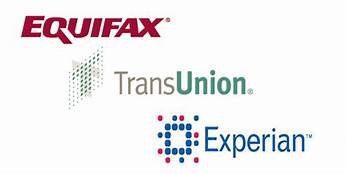Ever wondered why getting approved for a new credit card or apartment feels like solving a Rubik’s Cube? Chances are, the mysterious force behind the scenes are the three major credit bureaus: Equifax, Experian, and TransUnion. These companies, often shrouded in an aura of financial wizardry, hold the keys to your credit score, which in turn dictates your borrowing power and financial destiny.
But fear not, intrepid borrower! This blog post is here to demystify the credit bureau trio and equip you with the knowledge to navigate their labyrinthine world with confidence. We’ll explore:
- Who are these three credit bureaus?
- What exactly is a credit score, and how do they calculate it?
- How can you access and improve your credit report?
- Real-life examples of how understanding credit bureaus can benefit you.
So, grab a cup of coffee (or your preferred financial planning beverage) and settle in for a crash course in credit bureau 101.
The Big Three: A Trio of Financial Gatekeepers
Imagine three giant libraries, each filled with detailed files on your financial history. That’s essentially what Equifax, Experian, and TransUnion are. They collect information on your credit accounts, including mortgages, credit cards, loans, and even some utility bills. Based on this data, they generate your credit score, a three-digit number that summarizes your creditworthiness. A good score opens doors to lower interest rates, better loan terms, and even rental apartments. A bad score, well, let’s just say it can feel like being stuck in financial purgatory.
The Mysterious Algorithm: Demystifying Your Credit Score
Each credit bureau has its own proprietary algorithm for calculating your score, but they generally consider similar factors:
- Payment history (35%): This is the big kahuna. Missed payments or delinquencies can seriously tank your score.
- Credit utilization (30%): Don’t max out those credit cards! Keeping your credit card balances low relative to your credit limit shows responsible borrowing.
- Length of credit history (15%): The longer you’ve been borrowing and repaying responsibly, the better.
- New credit (10%): Applying for too many loans or credit cards in a short period can raise red flags.
- Types of credit (10%): Having a mix of credit accounts, like a car loan and a credit card, can be beneficial.
Remember, these are just general guidelines. The exact formula is a closely guarded secret by each bureau. Think of it like the Colonel’s secret blend of eleven herbs and spices – delicious, but the recipe stays under lock and key.
Taking Control: Accessing and Improving Your Credit Report
You’re entitled to a free credit report from each bureau every year. Get them! Reviewing your report regularly is crucial for spotting errors or fraudulent activity that could be dragging your score down. Think of it as a financial health checkup.
If you find inaccuracies, dispute them directly with the bureau. Fixing errors can be the quickest way to boost your score. And remember, responsible borrowing habits – paying bills on time, keeping balances low – are the golden keys to credit score nirvana. By visit AnnualCreditReport.com for free credit reports or learn more about credit score basics.
Real-Life Tales: The Power of Credit Bureau Savvy
Imagine Ankita, a recent college graduate eager to buy her first car. Armed with knowledge about credit bureaus, she diligently checks her reports, fixes a minor error, and avoids applying for multiple dealership loans. The result? A sparkling credit score that secures her a low-interest car loan, saving her thousands over the life of the loan.
On the other hand, Mark, who ignores credit bureau basics, neglects to check his reports, and racks up high credit card balances. His score plummets, leaving him facing sky-high interest rates and struggling to qualify for even basic necessities.
These are just two examples, but they illustrate the real-life impact of understanding and managing your credit.
The Final Score: Befriending the Credit Bureaus
The Big Three may seem like intimidating gatekeepers, but with the right knowledge and proactive approach, they can become your allies on the path to financial freedom. Remember, understanding your credit score, monitoring your reports, and practicing responsible borrowing habits are the keys to unlocking a world of financial opportunities. So, go forth, conquer the credit bureau mysteries, and watch your financial dreams come true!
This blog post is just the beginning of your credit bureau journey. There’s a wealth of information available online and from financial experts. Keep learning, keep growing, and most importantly, keep control of your credit destiny!
